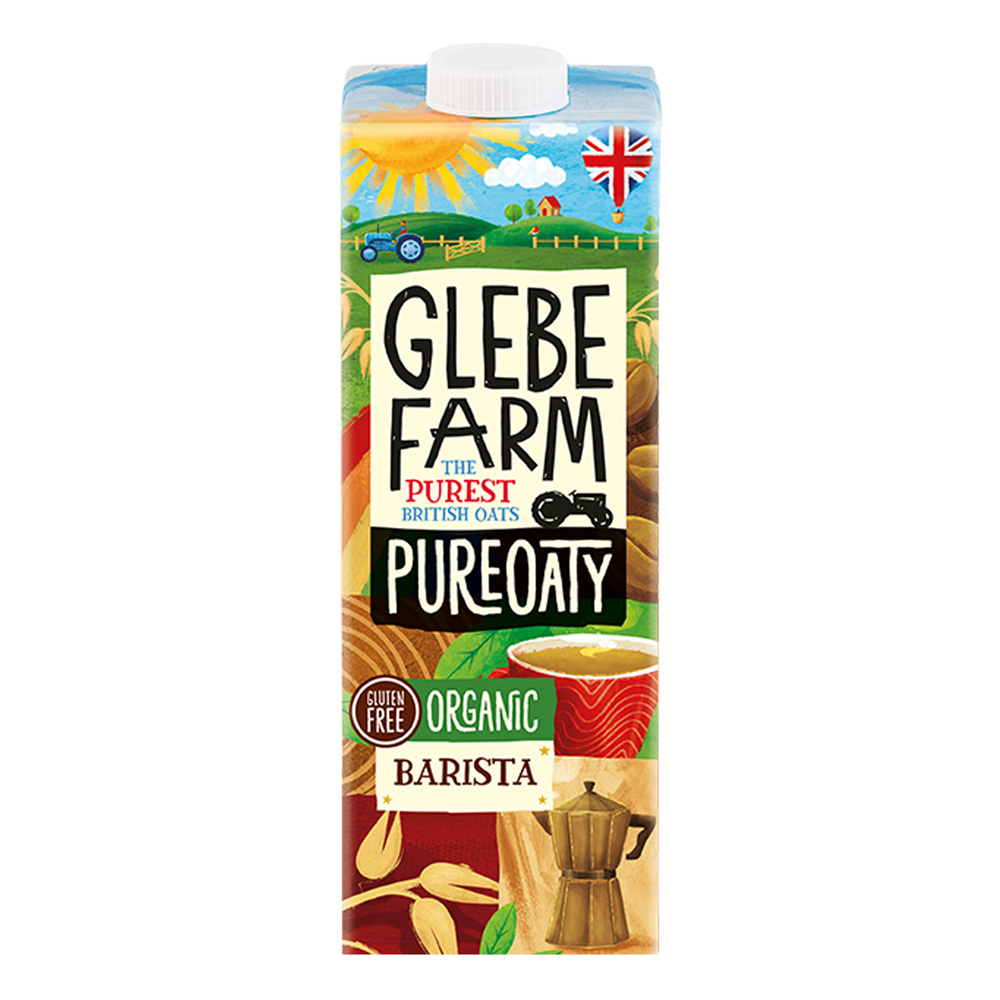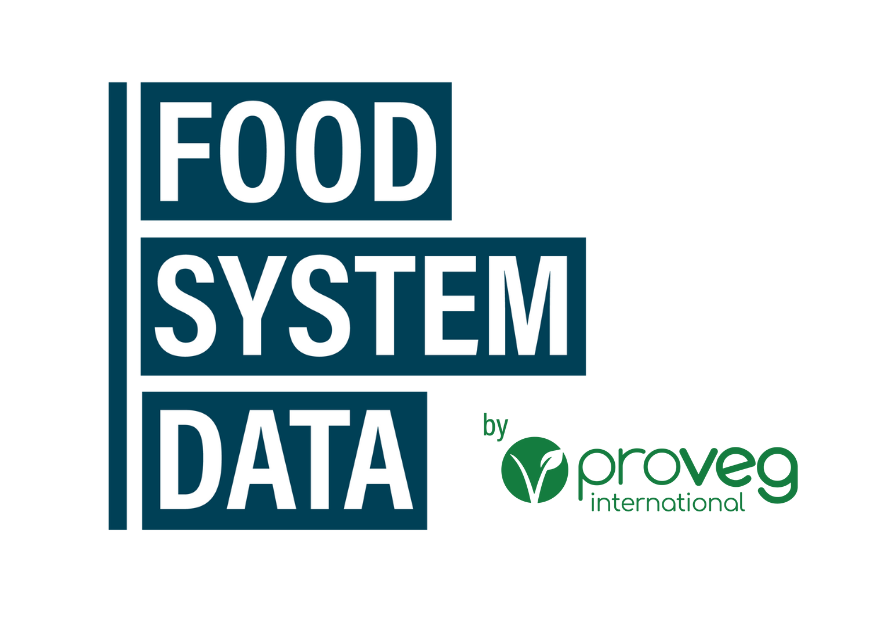Introducing our new series
Building a strong brand is essential for standing out and creating lasting consumer relationships. Our new monthly series dives deep into the core aspects of brand development. Authored by our own brand expert Simon Middleton, author of Build A Brand In 30 Days and What You Need To Know About Marketing, these must-read articles draw on insights from Simon’s own work, as well from the expertise of leading global brand experts like Mark Ritson and Byron Sharp. From defining your brand purpose, to creating emotional connections and leveraging distinctive assets, each article provides actionable strategies to elevate your plant-based brand. Join us to explore how to build a brand that resonates with consumers and drives long-term success in the competitive plant-based market.
Why finding your reason for being is good for business
In the crowded world of plant-based food, a clear brand purpose can make a real difference. Some brand experts say purpose is what sets brands apart and creates lasting bonds with consumers. As this market grows, understanding and leveraging brand purpose is crucial for anyone in a branding or marketing role in the sector. But what exactly is brand purpose, and how can it help plant-based food brands thrive? Let’s dive in.
The role of brand purpose
Aligning with consumer values
Brand purpose is essentially a brand’s ‘reason for being’ beyond making money. In a sector such as plant-based food, consumers really care about things like ethics, health, and the environment, as well as their key concerns of taste, nutrition, and price. If your brand purpose aligns with these values it can help create a deep connection with your audience, which in turn can support brand loyalty and premium pricing.
Guiding strategic decisions
A clear purpose keeps a brand focused and consistent in its decisions. For plant-based brands, this might mean sticking to ethical sourcing or consistently highlighting sustainability messages. This kind of alignment ensures that every action supports the brand’s core values and long-term goals.

Enhancing authenticity and building trust
Consumers today crave authenticity. They want to buy from brands that stand for something. For example, if a plant-based brand commits to using only locally sourced ingredients, it shows a real dedication to reducing its carbon footprint. If consistently demonstrated by actions, this kind of commitment can build trust and loyalty among consumers who care about the environment.
Driving emotional connection
We all buy products with our hearts as much as our heads, and a strong brand purpose connects emotionally with consumers. Plant-based brands can tap into shared values like animal welfare or sustainability to build these connections. When consumers feel emotionally tied to a brand, they’re more likely to become advocates who spread the word and build your audience.
Differentiating from competitors
In a market as busy as plant-based foods, a compelling purpose can make a brand stand out. Unique commitments like zero-waste packaging or supporting environmental restoration can provide clear reasons for consumers to choose one brand over another.

Fostering internal alignment and motivation
A clear purpose isn’t just for consumers; it’s for employees too. In the plant-based sector, many employees are passionate about the brand’s mission. A strong purpose can boost job satisfaction and productivity, creating a cohesive culture where everyone works toward the same goals.
Consistent purpose-driven messaging
Consistency in messaging is a major benefit of a well-defined brand purpose. It strengthens brand identity and ensures every interaction reinforces the brand’s values. This builds a recognizable and trusted image that resonates with consumers.
Differing perspectives: there’s always more than one point of view
Two of the best known and most widely read experts in the branding world are the UK’s Mark Ritson, and Australia’s Byron Sharp. They are both widely respected for their knowledge, but they don’t always agree (as this series of articles will show more than once)! But if you manage a brand then it’s definitely worth considering both perspectives.
Mark Ritson: execution over ideals
Mark Ritson argues that while brand purpose is important, it shouldn’t overshadow practical marketing strategies. He believes purpose should be genuinely integrated into business practices, and never just used as a marketing tool. For plant-based brands, this means ensuring their purpose is reflected in tangible actions like product quality and customer service.

Byron Sharp: empirical evidence and growth
Byron Sharp emphasizes that brand growth comes from being easily accessible and memorable. He questions the leading role of brand purpose in driving sales, suggesting that availability and brand salience are more crucial. For plant-based brands, this means balancing purpose with practical strategies to ensure products are widely available and recognizable.
Balancing purpose with practicality
Combining these different insights, plant-based brands can and should try to strike a balance between purpose and practicality. Purpose should guide and inspire, but must also be grounded in effective execution and commercial thinking.
Case studies: real-world examples
Patagonia: environmental stewardship
Clothing brand Patagonia’s mission to ‘save our home planet’ guides all its practices, from product design to marketing. Examples include donating 1% of turnover to environmental causes, and its Worn Wear program which encourages customers to repair, reuse, and recycle their Patagonia gear. This approach has built a worldwide fanbase for the brand.
TOMS Shoes: social impact
TOMS’ One for One model, where they donate a pair of shoes for every pair sold, has resonated with consumers wanting to make a difference. Their expanded mission includes clean water and anti-bullying programs. It’s a way of operating that has made TOMS stand out in a hugely crowded market.
Beyond Meat: sustainability and health
Beyond Meat aims to address human health, climate change, resource conservation, and animal welfare. Their consistent messaging around these issues has built a strong, trusted brand in the plant-based food sector.
Oatly: environmental advocacy
Oatly promotes a sustainable food system by encouraging people to switch from dairy to oat milk. Their bold marketing campaigns highlight the environmental benefits, building a distinctive and impactful brand identity.
Practical action points for brand leaders
Define and refine your brand purpose
- Conduct workshops with stakeholders to define or refine your brand purpose.
- Engage customers to shape a purpose that connects with your audience.
Integrate purpose into all business functions
- Reflect your purpose in all operations, from sourcing to customer service.
- Educate employees about your brand purpose to ensure they can and do embody these values.
Communicate consistently and authentically
- Develop a communication strategy that consistently reflects and reinforces your brand purpose.
- Use real stories to authentically convey your purpose to your audiences.
Measure and adapt
- Establish metrics to measure the impact of your brand purpose.
- Regularly review and adapt your strategies based on these metrics.
Engage and empower your community
- Involve your community in purpose-driven initiatives.
- Encourage customers to become advocates for your brand purpose.
By following these steps, as a brand leader in the plant-based food sector you can ensure that your brand purpose not only drives strategic decisions but also resonates deeply with consumers, paving the way for long-term success and growth.
By Simon Middleton, Editorial Specialist, ProVeg International




